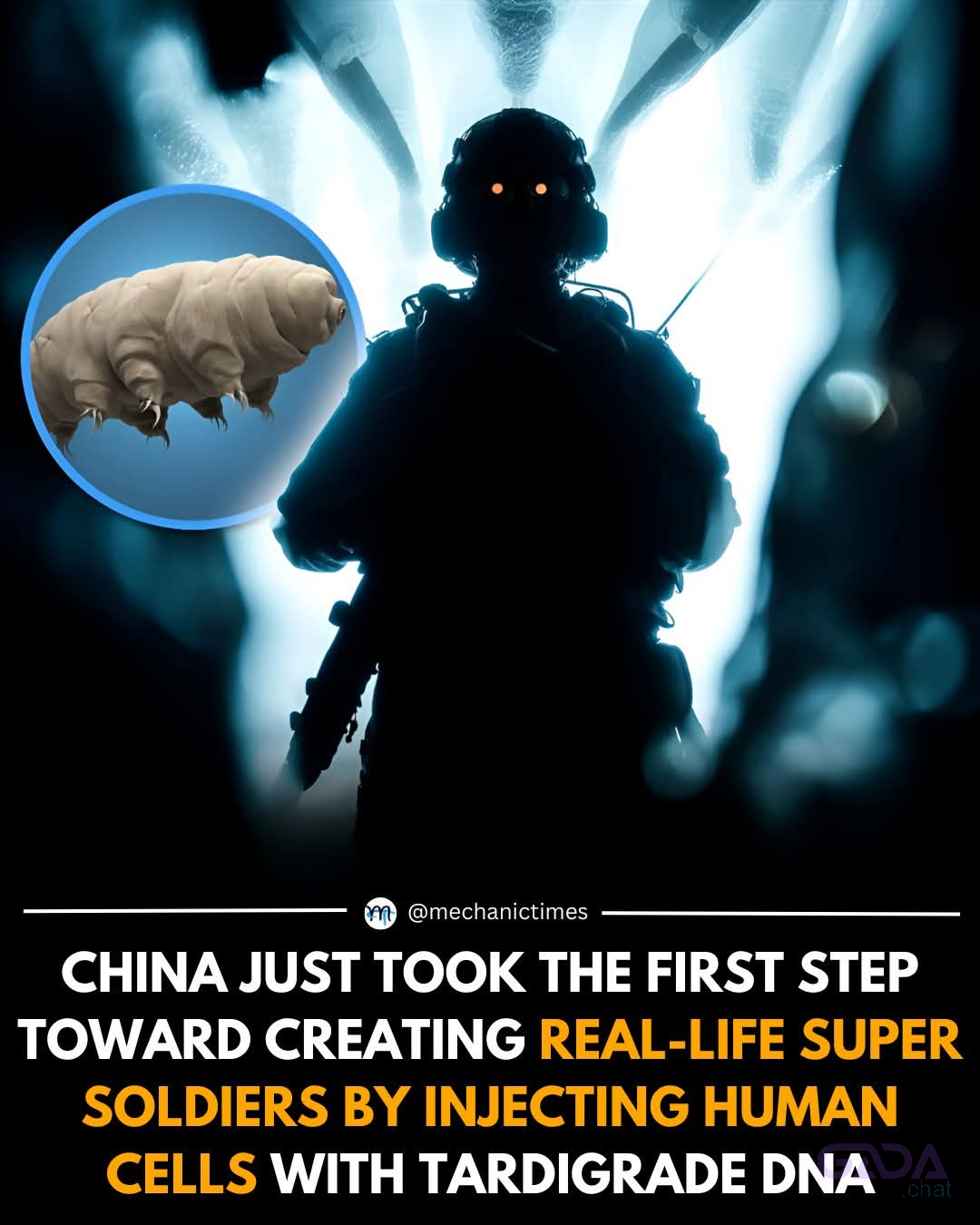Chinese military scientists are pushing the boundaries of biology by injecting human stem cells with DNA from tardigrades—tiny creatures famed for surviving radiation, freezing, and even space. The goal? To engineer cells that can endure lethal environments, like nuclear warfare.
Using CRISPR/Cas9 editing, researchers at Beijing’s Academy of Military Sciences have already created human cells that survived X-ray doses that would normally be fatal, while also displaying accelerated growth.
Tardigrades survive extremes thanks to protective proteins that shield their DNA. By transferring this resilience to humans, China may be laying the foundation for genetically enhanced soldiers capable of enduring the most hostile conditions on Earth—or beyond.
This advancement raises serious ethical questions, but the science is moving fast—and it’s not just science fiction anymore.
#TardigradeDNA #GeneEditing #SuperSoldiers #CRISPR #MilitaryBiotech #FutureTech #GeneticEngineering #ChinaInnovation #DNAresearch #ScienceNews
Using CRISPR/Cas9 editing, researchers at Beijing’s Academy of Military Sciences have already created human cells that survived X-ray doses that would normally be fatal, while also displaying accelerated growth.
Tardigrades survive extremes thanks to protective proteins that shield their DNA. By transferring this resilience to humans, China may be laying the foundation for genetically enhanced soldiers capable of enduring the most hostile conditions on Earth—or beyond.
This advancement raises serious ethical questions, but the science is moving fast—and it’s not just science fiction anymore.
#TardigradeDNA #GeneEditing #SuperSoldiers #CRISPR #MilitaryBiotech #FutureTech #GeneticEngineering #ChinaInnovation #DNAresearch #ScienceNews
Chinese military scientists are pushing the boundaries of biology by injecting human stem cells with DNA from tardigrades—tiny creatures famed for surviving radiation, freezing, and even space. The goal? To engineer cells that can endure lethal environments, like nuclear warfare.
Using CRISPR/Cas9 editing, researchers at Beijing’s Academy of Military Sciences have already created human cells that survived X-ray doses that would normally be fatal, while also displaying accelerated growth.
Tardigrades survive extremes thanks to protective proteins that shield their DNA. By transferring this resilience to humans, China may be laying the foundation for genetically enhanced soldiers capable of enduring the most hostile conditions on Earth—or beyond.
This advancement raises serious ethical questions, but the science is moving fast—and it’s not just science fiction anymore.
#TardigradeDNA #GeneEditing #SuperSoldiers #CRISPR #MilitaryBiotech #FutureTech #GeneticEngineering #ChinaInnovation #DNAresearch #ScienceNews
0 Comentários
0 Compartilhamentos
909 Visualizações




